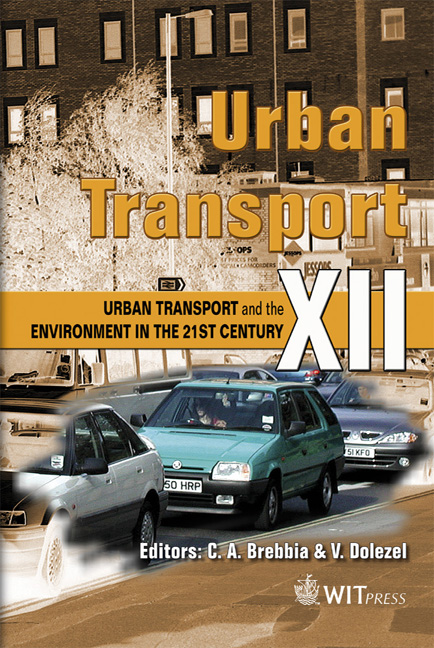Tradable Traffic Rights For Urban Transport
Price
Free (open access)
Transaction
Volume
89
Pages
10
Published
2006
Size
404 kb
Paper DOI
10.2495/UT060861
Copyright
WIT Press
Author(s)
E. Musso, C. Burlando & C. Sillig
Abstract
The paper aims at studying the theory of tradable pollution rights applied to urban mobility. In particular the paper focuses on the urban congestion problems and investigates the possibility to keep under control not only urban pollution but congestion through tradable rights applied to traffic management. The introduction of tradable rights in urban mobility is considered in the aim to establish a market system where traffic is kept under control at a given level. Tradable rights are exchanged between different subjects on the basis of their different need to travel and of their consequent willingness to pay. This gives place to a market for rights to circulate at a market price which results from the intersection of supply and demand of tradable certificates. Price is not, therefore, fixed by a policy maker. The paper discusses different schemes of tradable permits markets and focuses on the main effects and problems arising from the application of this tool: fixing circulation level, defining criteria to distribute certificates, preserving market competition and urban development. Furthermore, the paper investigates some possible solutions to emerging problems and analyses the possibility of combining tradable permits and other policies in order to point at an organic governance of urban mobility. Keywords: urban mobility, tradable rights, traffic, market, governance of urban mobility. 1 Introduction Inspired by Coase’s theory on property rights [1], Dales [2] proposed in 1968 the use of tradable permits as a regulation tool for the administration of environmental resources. In the most common scheme, a maximum level of
Keywords
urban mobility, tradable rights, traffic, market, governance of urban mobility.





